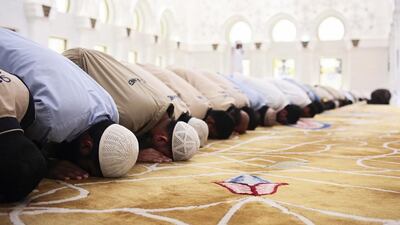In the first half of the last century, religion was so ensconced in Britain that the Church of England was often referred to as “the Conservative Party at prayer”. In 1936, King Edward VIII relinquished his throne for insisting on breaking the rules of that church – of which he was supreme governor – to marry a divorcee.
The decline
Today, a survey shows just how far religion has declined in Britain. For the first time, according to a report due to be issued in the House of Commons this week, non-believers outnumber Christians 48.5 per cent to 43.8 per cent in England and Wales, with those of no faith almost doubling their numbers from the 2011 census.
There has been a significant drop in those identifying as Christians in America as well. Last year, Pew Research found the ranks of non-believers have swelled from 16.1 per cent to 22.8 per cent.
Traditionally devout Ireland has seen a collapse in weekly attendance at Catholic mass, from more than 90 per cent in the 1970s to about 30 per cent, with some parishes recording rates of only 2 to 3 per cent.
Christianity is rapidly retreating in its old strongholds – to such a degree that some denominations are in danger of disappearing entirely. In 2005 I interviewed David Deeks, the then general secretary of the Methodist Church. That church once underpinned Britain’s Labour movement, with the late prime minister Harold Wilson famously saying that his party owed far more to Methodism than to the teachings of Karl Marx. The Methodist church once had congregations in the millions.
But when I spoke to him, Mr Deeks’s hopes for his church’s future hung by a thread. “Young people know nothing about the Methodist Church – a whole swath of history has been lost to them,” he said. “I don’t want to exaggerate, but we were something.”
National Geographic magazine recently went even further, headlining an article: "The World's Newest Major Religion: No Religion". It noted that the United Kingdom's Christian Mennonite sect had held its last collective service in March.
The other story
But this is the story of the West. Elsewhere in the world religion is growing. Pew projects that Christians will number 2.9 billion and Muslims 2.8 billion worldwide by 2050. This sets up a potentially worrying divergence between societies where rights, laws and values are increasingly based on temporary consensuses and majorities and those where timeless values – and possibly more conservative interpretations of those values – dominate.
"The secularisation hypothesis is a European myth, a piece of myopic parochialism that shows how narrow our worldview continues to be," wrote commentator Giles Fraser, an Anglican cleric, in The Guardian.
This sphere, in which belief is being abandoned, devotes astonishing amounts of time and space to issues that spring from the margins, and then become the front lines of battles to defend rights no one had much thought to raise before, such as gender fluidity.
The rest of the world watches in incomprehension, but the “narrow world view” which Mr Fraser mentions is stern and unbending. If religion opposes the latest “right” that the secular West has erected, then it is, according to this view, not just wrong but actively bad.
The dangerous prospect is of countries where faith is declining being tempted to think it matters less and becoming more ignorant – and disdainful and fearful – of it.
When it is becoming more and more important to the identity and self-definition of millions, if not billions, of people, this is precisely the time when non-believers need to know more about their religious counterparts.
Need for understanding
I’ve long maintained that religion is a reality that needs to be understood. But my past experience of arguing this to predominantly non-believing readerships is that the mind of many a committed atheist is firmly closed and actively hostile to anything smacking of sympathy to religion.
This is to shut out the totality of the great civilisations that were inextricably connected to religion. How diminished our understanding of Saladdin, Suleiman the Magnificent or Charlemagne would be if we ignored the role and motivation of faith in their lives.
It would also be a refusal to connect to mindsets often very different to those of western non-believers.
The atheists are still inclined to take it as read that the trajectory globally is for societies to become ever more secular, and with a steadily decreasing role for religion in the public square.
But the fact that, at independence, many developing countries possessed constitutions and elites with similar assumptions may be seen ultimately as a colonial legacy – and one that, once they have undergone a “decolonisation of the mind” as Malaysia’s Dr Mahathir Mohamad has put it, they may reject.
The trends
The trends are clear. The world is becoming more, not less religious.Growing numbers of Europeans and Americans may be casting off faith. It is in their own interests, however, that they do not forget its power and centrality to the majority of humanity.
For it is to that majority that power and wealth are inexorably ebbing.
To attempt to understand them will not be just a matter of amity in the future, it will be an imperative.
Sholto Byrnes is a senior fellow at the Institute of Strategic and International Studies, Malaysia
More from this author:
■ Why we need a new world order
■ 'Duterte Harry' or not, democracy isn't in peril


